Abstract: In 2008 astronauts aboard the International Space Station captured an image of sunlight as it passed through the Earth’s thin atmosphere, described as the thin blue line of “all that stands between life on Earth and the cold, dark void of space.” At the center of sustainability education is a discourse of climate change and life’s demise on the planet. In this short article, the contributing role of the United Nations University’s Regional Centres of Expertise (RCEs) for sustainability education is explored with respect to community-based climate change adaptation, notably through RCE Dhaka (Bangladesh) as an example of the challenges and opportunities for climate change adaptation in one of the most heavily populated megacities of the Global South.
Continue Reading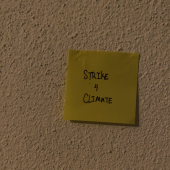
Abstract: This editorial discusses the intersection of environmental and racial justice and how the movement has failed to center voices most affected by climate change.
Continue Reading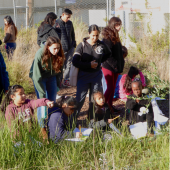
This essay explores the role of critical pedagogy in environmental justice education. We discuss the need for teaching a love of nature (biophilia) as an entry point for developing a caring relationship and sense of stewardship with the natural world. Place-based education and ecopedagogy offer liberatory potential to make education more transformative and focused on the intersections between social and environmental justice. After discussing theoretical approaches of ecopedagogy and indigenous perspectives, we describe a project in which a principal converts the hardscape at two schools into natural habitats and a new teacher engages her students in ecopedagogy.
Continue Reading
The Flint water crisis, considered one of the worst public health crises of our time, continues to have devastating and irreversible impacts for residents six years in the making, from 2014 to present. The understanding and awareness of this public health crisis is vital in order to comprehend the impacts of poor urban management and the human right to clean water in the nation’s marginalized and poor communities. This article will document the context of the Flint water crisis and the Dakota Access Pipeline using photography as an immersive storytelling medium to humanize the issue. Additional stories, including those of Indigenous youth water activist Autumn Peltier and Flint youth activist Mari Copeny, document innovative ways in which we can contribute to a more informed society. Educators provide various ways to integrate the themes of environmental justice, water accessibility, sustainability, and climate change across multiple subject areas.
Continue Reading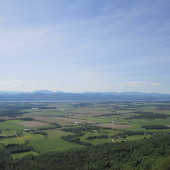
This case study describes the experiences developing and teaching a course entitled “Understanding Place” at the Middlebury School of the Environment 2015 summer session. The course sought to include multi-disciplinary approaches to place while simultaneously engaging students and faculty in hands-on projects across the Champlain Valley in Vermont. Rather than engaging in depth with specifics of environmental history in the Champlain Valley, however, students were asked to apply the multiple perspectives encountered in the course to develop elements of a “toolbox” related to understanding the significance of place in a world increasingly characterized by globalization and mobility. In other words, rather than learning complex details and history of a singular place, students developed perspectives for understanding, valuing, and protecting the many places where they may live throughout their lives. At the conclusion of the course students were asked to teach other members of the Middlebury community about their findings. This collaborative effort over six intensive weeks between students and faculty resulted in a creative pedagogical tool—an “understanding place cookbook”—that was shared with all School of the Environment participants, faculty, and staff. While this case study is grounded in the specific context of the Middlebury School of the Environment, it points to tools and experiences that could be useful for developing globally aware place-based education at any institution, bringing an appreciation of global stratification and inequality into localized efforts toward community sustainability and resilience.
Continue Reading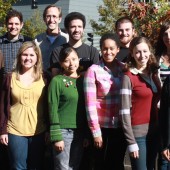
This article discusses the evolution and work of Brown University’s Climate and Development Lab (CDL). As leaders of the CDL, we engaged students in experiential education while attending the United Nations climate change negotiations in Cancun, Mexico in 2010, and in Durban, South Africa in 2011. Simultaneously, we collaborated with students to provide relevant and timely research and public scholarship oriented by the goal of advancing global justice in international climate change policy. Here we offer a conceptualization of our pedagogy for the CDL, which is a synthesis of two guiding principles: ‘engaged education’ and ‘global just sustainability’. We discuss the ways in which we organized the CDL in relation to this pedagogy and everyday logistics, and reflect upon our accomplishments and the challenges that we faced. We argue that while there are areas where we can improve upon our practice, the potential of this type of learning is considerable, and can be complementary to producing scholarly outputs that contribute to a more just and sustainable world.
Continue Reading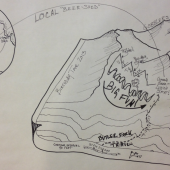
The socioecological challenges we face have never been so complex, so intractable, and so urgent. And while both justice-oriented education and education for sustainability are growing in colleges and universities across the United States, normative perspectives of outdoor experiential education have fallen embarrassingly behind. In this paper, we offer critical sustainability as a conceptual basis for engaging students in the beauty, perversity, and complexity of our world. Critical sustainability, integrating sociopolitical systems of privilege and oppression with the socioecological imperatives of global health and justice, provides an exciting and promising pedagogical direction. With this conceptual framework, we explore perspectives of “nature,” placefulness, and our multiple, overlapping subjectivities as students, educators, and engaged citizens. Our task as outdoor educators is to bring the faraway nearby and inspire students to engage in the myriad challenges we face as individuals, citizens, and as members of a global ecological community. We conclude by offering place mapping as a pedagogical technique to support elements of critical sustainability in outdoor education settings and beyond.
Continue Reading